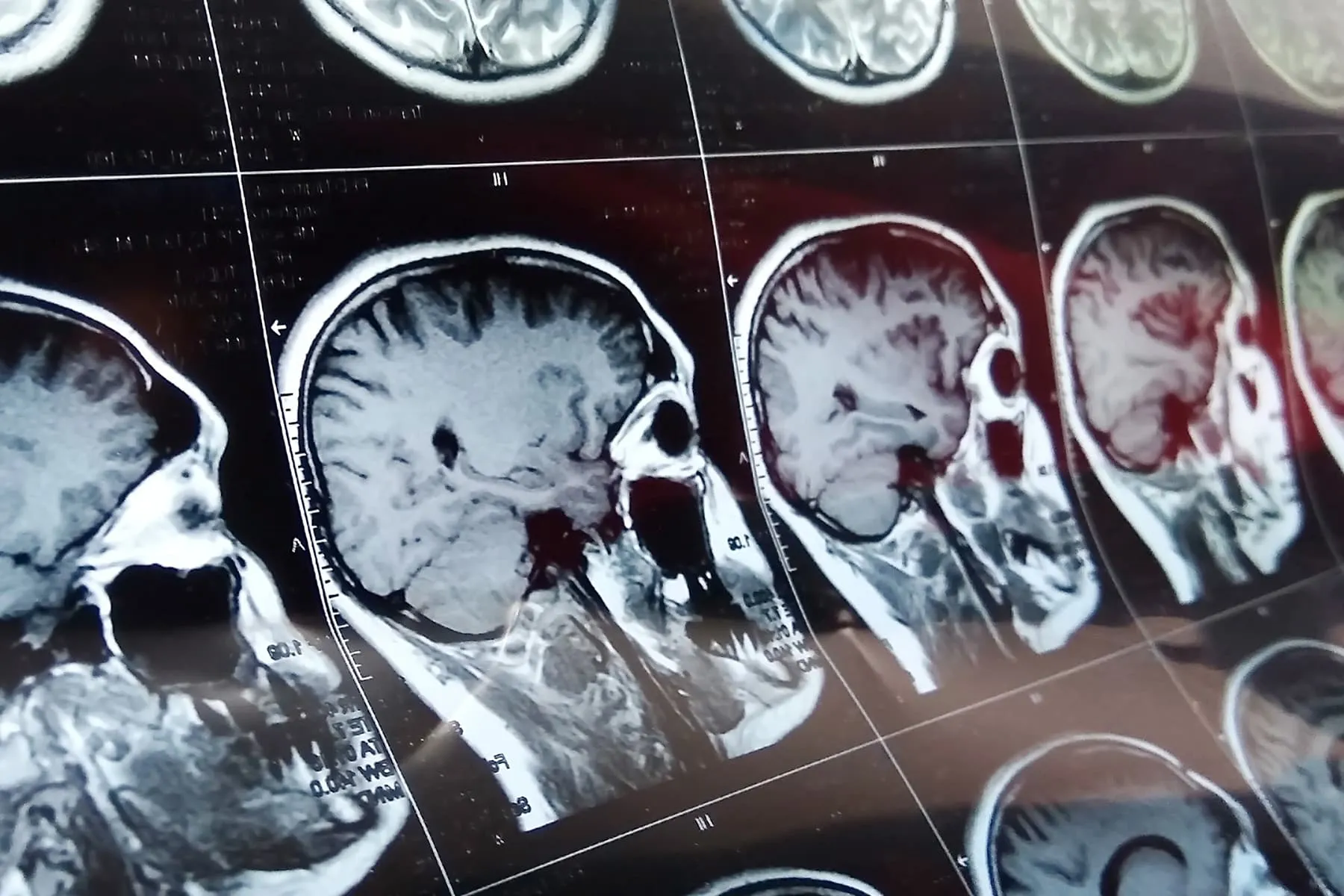Editor’s note by Damian McNamara, Staff Writer for WebMD and Medscape
July 10, 2023 – It turns out that writing about medical studies doesn’t really give you a full understanding of what it’s like to participate in one. I always thought I would stay on the sidelines, reporting on the findings and advancements in the field. But then I discovered that I might be genetically predisposed to amyotrophic lateral sclerosis (ALS) and frontotemporal dementia (FTD), two devastating central nervous system disorders.
In May 2022, I received an email informing me that my 67-year-old cousin, whom I hadn’t seen in person since childhood, had been diagnosed with ALS and FTD. Her sister shared this news with us and also alerted us to the possibility that we might be genetically at risk as well. My cousin’s symptoms started off subtly, but they have now become quite evident. She can no longer drive, has difficulty finishing sentences, and has become withdrawn even with her husband. She is only able to continue working due to accommodations made by her employer. We later discovered that she has a mutation in the C9orf72 gene, which is the most common genetic change associated with ALS/FTD in Europe and North America.
ALS is a progressive disorder that weakens muscles and damages nerves in the brain and central nervous system. It primarily affects the motor neurons responsible for voluntary movements like chewing, walking, and talking. There is currently no cure for ALS, and the median survival time after diagnosis is 2 to 5 years, with only 10% of affected individuals living another 10 years. FTD, on the other hand, causes progressive damage to the temporal and frontal lobes of the brain, resulting in changes in personality, impulsive behavior, and difficulty speaking. It is estimated that about 40% of people with FTD also have the C9orf72 genetic mutation.
Upon learning about my cousin’s diagnosis, I discussed with my siblings whether we should get tested ourselves. However, like other genetically inherited conditions with no known cure, the answer was unclear. If we were to test positive for the genetic mutation, what could we actually do about it? Would it be better to know or not know? That’s when I discovered the ALLFTD Trial, a multi-site study being conducted by researchers at Mayo Clinic and the University of California San Francisco. The trial aims to investigate changes over time in individuals with various neurodegenerative conditions, including ALS/FTD. They are collecting cerebral fluid samples for current and future research purposes and are also enrolling asymptomatic relatives of those affected.
It was only then that I realized the pattern in my family history. Both my maternal grandmother and my cousin’s mother (my maternal aunt) had died from ALS. I had dismissed these occurrences as mere coincidences, but with my cousin’s diagnosis, it became clear that we were facing a hereditary condition. It was a heartbreaking realization, as well as a source of anxiety as I contemplated what this meant for myself and future generations.
According to the National Library of Medicine, only 5% to 10% of ALS cases are inherited, while the majority are sporadic with no identifiable family pattern. The Alzheimer’s Association estimates that 50,000 to 60,000 Americans have FTD and primary progressive aphasia (PPA), a condition characterized by the loss of speech and language comprehension.
In 2014, I participated in the ice bucket challenge to raise funds for ALS research, dedicating it to my late grandmother. After that, ALS was no longer at the forefront of my mind until I interviewed Nancy Frates, the mother of a son with ALS, for an article in 2019. Frates is credited with starting the ice bucket challenge, which raised millions of dollars for ALS research. Her son lived with the disease for 8 years before passing away at the age of 34.
Driven by my background as a medical writer, I decided to be the first in my immediate family to undergo genetic testing. However, my older brother and a cousin warned me about the potential consequences of negative genetic findings, as they could impact my ability to secure life or health insurance in the future. Despite their concerns, they wished me luck and wanted to be kept updated on the results, as it would inform their own risk assessment.
I applied to participate in the ALLFTD Study, as being part of a clinical trial offered greater confidentiality and reassurance. After filling out the necessary forms online, I eventually received notice of my acceptance into the trial. This marked the beginning of a more tangible journey.
During an in-person study appointment at a hospital in Boston, I underwent a series of evaluations and tests. These included a brain MRI, which was the logical starting point to ensure I had a brain, followed by neurologic and cognitive tests. The day was both exciting and nerve-wracking, but I was guided by the study technicians and provided with a sense of comfort throughout the process.
Following the MRI, I was handed a voucher for lunch and dined in the hospital cafeteria, where I inadvertently found myself lost and in the way of the regular staff. Afterward, I underwent a series of neurologic and cognitive tests in a small, windowless room, feeling as though I was being interrogated. I then had a virtual meeting with a study neurologist to further discuss my family history and the implications of ALS and FTD.
By the end of the day, I felt mentally and physically exhausted. Yet, I remained hopeful that participating in this trial would ultimately lead to a better understanding of my own risk and contribute to ongoing research efforts.

